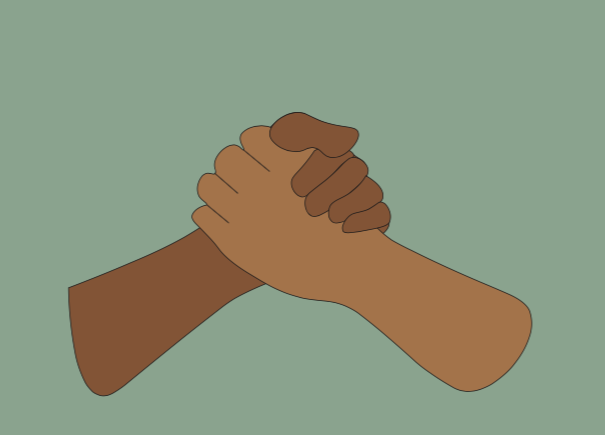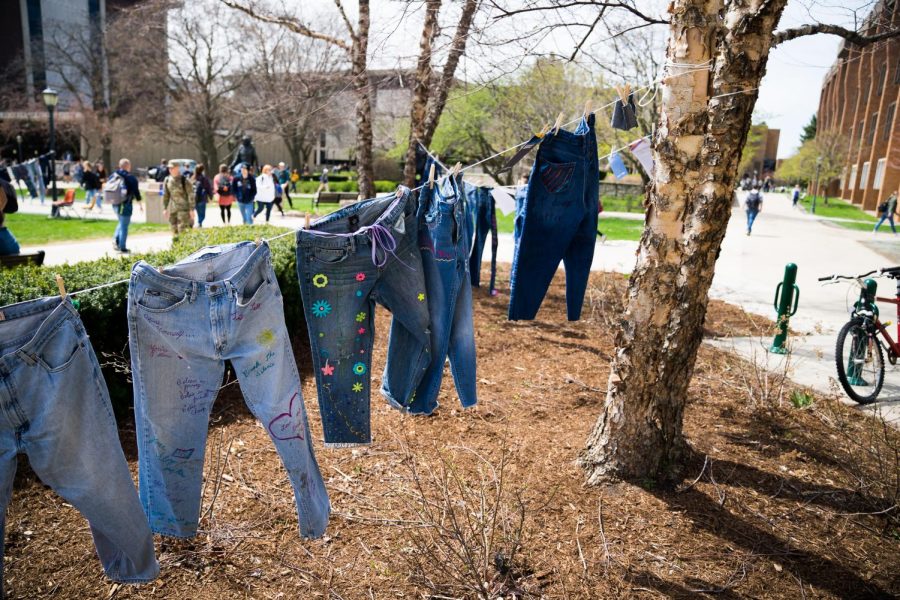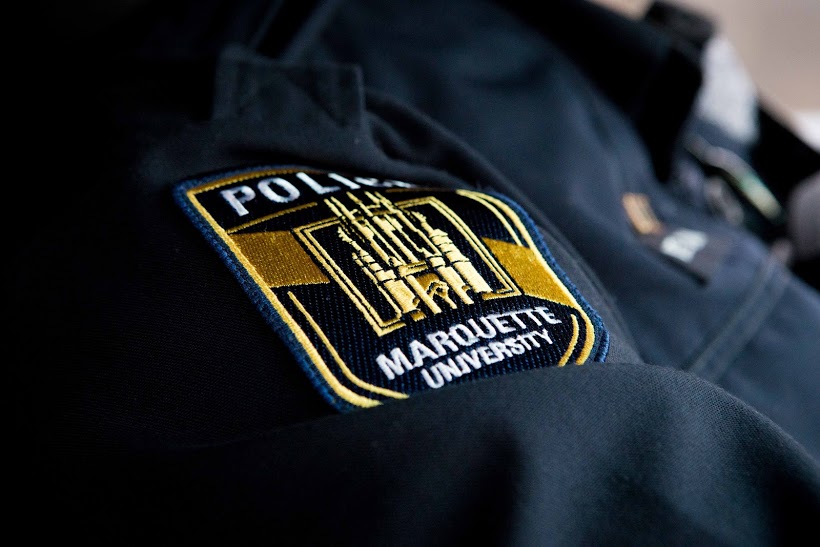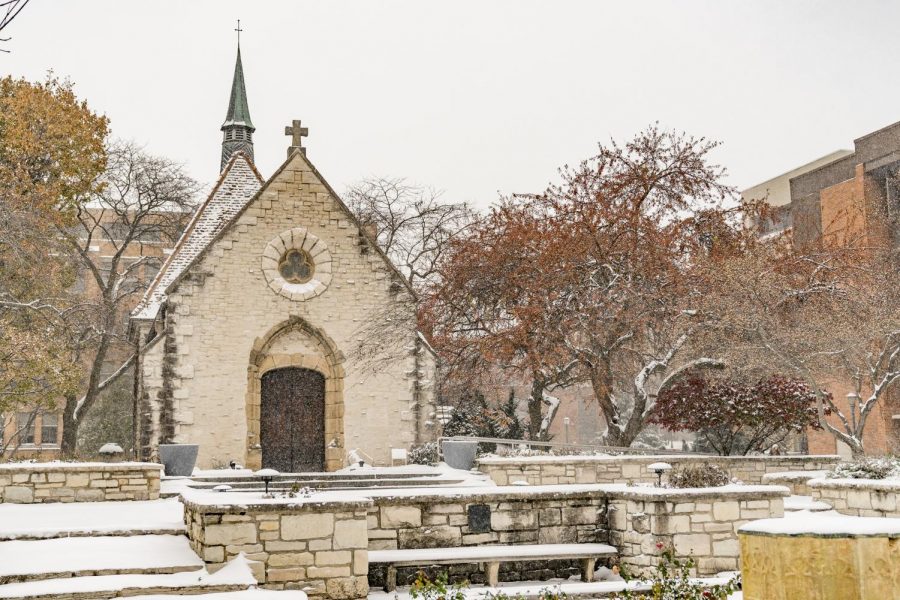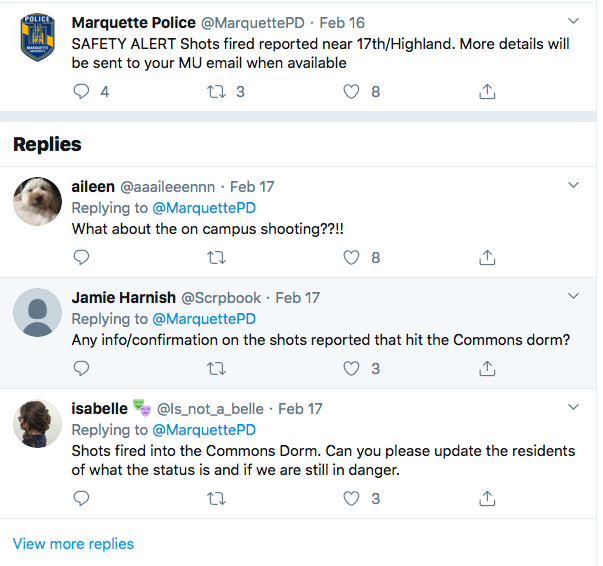Finals are looming, and summer is beckoning. Warm weather is making a much-appreciated comeback, and spirits seem high.
But the mood was much more dour around this time last year, as Marquette’s search for an Arts & Sciences dean ended in controversy that engulfed campus.
Accusations of discrimination abounded as Jodi O’Brien, a lesbian professor at Seattle University, was first offered the job, only to have the contract rescinded under hazy circumstances.
The aftermath of the O’Brien fiasco brought awareness to the concerns of campus’ LGBT community, but also highlighted a deeper issue — the seemingly growing communicative disconnect between administration, faculty, students and staff, especially those who identify as LGBT.
But after coming back from the summer break, the university has taken significant steps in repairing relations with and improving conditions for the LGBT community on campus. Most are encouraged by the progress and remain optimistic the university is on the right track.
Provost John Pauly said improving the level of communication wasn’t an “if” or “when” — it was something that needed to happen immediately.
“Since last spring, it’s been increasingly important we need to continue, and improve upon, involving all groups on campus in university discussion,” Pauly said. “All opinions and perspectives should be represented.”
Improving communication was the first step in moving forward. Next, the eyes on campus were waiting to see what action Marquette would take to improve conditions for those who identify as LGBT.
Chris Miller, vice president for Student Affairs, said it was concerning to know LGBT students felt unsure of their place on campus. Rectifying that situation was a priority, he said.
“Anytime students feel isolated or marginalized, it’s a cause of great concern,” Miller said. “Accordingly, we’ve stepped up our efforts significantly and committed to providing a safer and more inclusive campus.”
And it hasn’t been just talk. Students like Nate Schultz, a senior in the College of Education, have taken notice of university efforts to provide programming and services directed at LGBT students.
“The new initiatives and programs put in place this year have been great,” Schultz said. “I have definitely seen improvements, especially in the amount of openness and willingness to simply talk about LGBT issues.”
New programming introduced this academic year include: the LGBT Orientation Welcome Reception held at the beginning of the academic year, LGBT awareness week, LGBT Respect Life month and observance of the Day of Silence.
More action is being planned for next year, as the university’s efforts don’t stop with the last day of class.
One of the more prominent steps that is already underway is the creation of a Gender Resource Center.
Pauly, at the final Fr. Wild Forum held March 31, announced university plans for opening the center next year — something students and others have been clamoring for.
Erin Ruckoldt, a senior in the College of Communication and president of the Gender/Sexuality Alliance, said a gender center is something she has wanted to see established.
“What I really want to see this university do is to get a LGBT resource center with a trained, full-time staff who knows what they are doing,” Ruckoldt said. “It’s very important to have a place for the LGBT community to gather and feel comfortable just being themselves.”
Pauly said details on space and location for the center are being decided upon at the moment and should be announced soon.
Another initiative to be implemented in fall 2011 is the Ally Program, recommended by Ronni Sanlo in her report on the LGBT climate at Marquette. Sanlo, a gay activist and former professor at UCLA, was brought to campus in October at the request of the administration.
This campus-wide program is directed at educating people on LGBT matters, providing a “safe zone” for LGBT students and training students and faculty — “Allies” — who want to help and guide people who identify as LGBT, Miller said.
But the biggest change won’t come with the introduction of a new program or discussion. It comes with the arrival of the Rev. Scott Pilarz, who takes over for current University President the Rev. Robert A. Wild next semester.
Pauly said Pilarz has kept abreast of the issues and ongoing discussion at Marquette.
“(Pilarz) is very aware of the situation and eager to get here,” Pauly said.
Nancy Snow, a professor of philosophy, said the future of administration-LGBT relations rest upon Pilarz and the leadership he can bring.
“Pilarz comes with a clean slate and a lot of promise,” Snow said. “His leadership and action can decide the future of LGBT matters at Marquette.”
And while those invested in the matter are excited at the steps being taken, this is hardly time to let up.
“There’s a lot of work to be done that should not go away,” Schultz said. “Too often universities — in general — work on addressing certain issues, then wait until the student body moves on enough to drop the cause. I have not sensed the administration will do the same, and am still hopeful of the progress being made.”
It’s a sentiment the administration shares.
“We can’t solve the entire problem in just one year,” Pauly said. “It’s an ongoing process and discussion, and needs to continue to be as such.”


